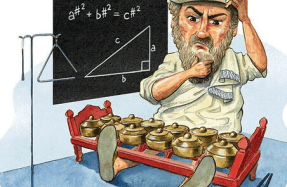
CHAMBER CHOICE
An utterly joyful Julius Eastman experience
The Talea Ensemble and Harlem Chamber Players do the US composer’s work proud, says Kate Wakeling

Eastman
Femenine
Talea Ensemble, Harlem Chamber Players
Kairos KAI0015116 71:59 mins
‘What I am trying to achieve is to be what I am to the fullest,’ said the American composer, singer, pianist and choreographer Julius Eastman in 1976. ‘Black to the fullest, a musician to the fullest, a homosexual to the fullest.’ Eastman (1940-1990) was among the first composers to combine elements of pop music with minimalist approaches, deploying repeated patterns that gradually shifted to create ‘organic music’.
Often provocatively titled, his works did not receive their due acclaim during his lifetime. In recent years, however, his music has been celebrated and this magnificent new recording of 1974’s Femenine marks an important contribution to Eastman’s legacy. It is a true delight to hear this gorgeous, meditative piece of music brought to life with such care and conviction by the Talea Ensemble and Harlem Chamber Players.
As the spelling hints, explores the fluid potential of gender binaries, an idea set to work in the score through its adherence to two pitches at the opening, before the work slowly blossoms into a richer tonal palette. The piece is cast as a single movement which lasts almost an hour and a quarter, and builds from a simple vibraphone motif to a radiant tapestry of sound. The selected instrumentation for this interpretation includes flute, clarinet, solo strings, piano and vibraphone which together bring a crisp clarity, while an improvised, oozing synth bass lends a woozier, more pop-infused feel. The result is a heady and utterly joyful musical experience, one capable of leading the listener to thrilling new territories of thought and






